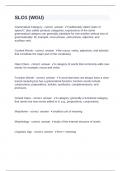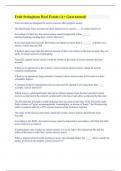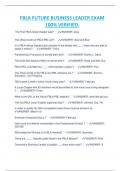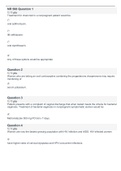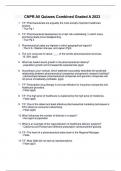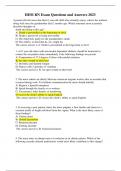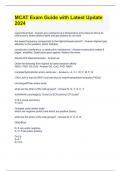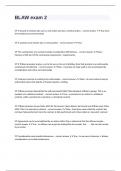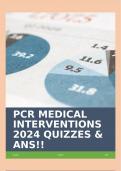Exam (elaborations)
SLO1 Question and answers already passed 2024
- Course
- Institution
SLO1 Question and answers already passed 2024 SLO1 (WGU) Grammatical Category - correct answer Traditionally called "parts of speech"; also called syntactic categories; expressions of the same grammatical category can generally substitute for one another without loss of grammaticality: for ex...
[Show more]
